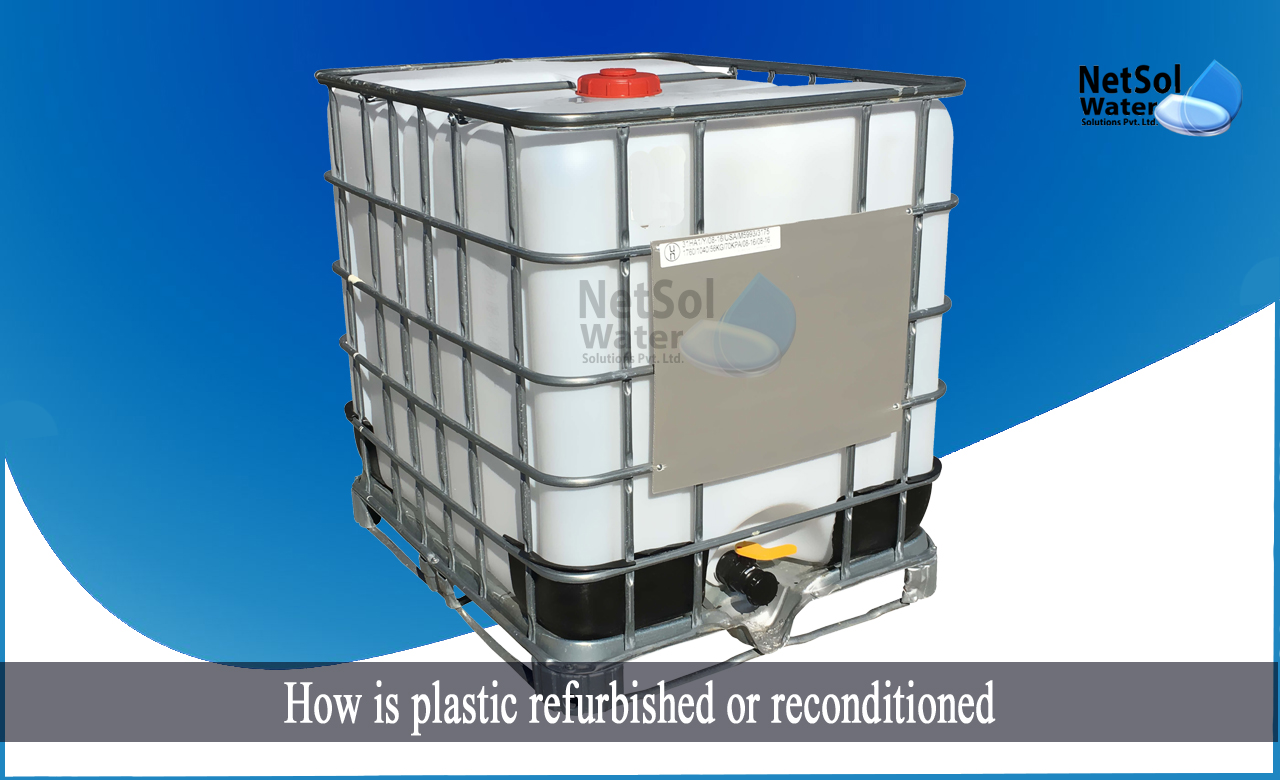How is plastic refurbished or reconditioned?
Plastic waste frequently contains significant untapped value that, when regenerated using circular economy principles, can help reduce its environmental impact. Therefore, it becomes important to refurbish plastic, so that it can be reused.
· Adopting Long-Term Material Solutions
Because, the raw materials used in plastic production are primarily produced from fossil fuels, the plastic value chain is carbon intensive from the start.
Adopting sustainable material solutions throughout the value chain has the potential, to reduce the plastic industry's reliance on fossil fuels. Bringing circular design to plastic items by ensuring that they are designed using easier to recycle polymer forms, is one of the different interventions. Another suggestion is to levy different charges, on the usage of virgin plastic versus recycled plastic, in the manufacturing process to incentivize the latter.
The roadmap also looks at ways to reclaim lost value in the downstreamprocesses. Sustainable material solutions attempt to limit carbon emissions at the upstream (raw material production), and midstream (manufacturing and use) stages of the plastic value chain.
· Make more high-quality secondary plastics feedstock accessible
Over 60% of plastic waste in India is recycled, but the majority of this recycling occurs in the informal sector, resulting in quality difficulties with the recycled material.
As a result, the fraction of recycled plastic that might replace virgin plastics is relatively small, implying that the reliance on virgin plastic will remain.Plastics that are complex or difficult to recycle because they are made of mixed materials/multi-polymers, or because they are polluted or unclean after usage, end up primarily as unmanaged waste.
Increased supply of good quality recycled plastic as feedstock for plastic manufacture, may be the best choice for reducing the plastic value chain's dependency on virgin plastics. To reach this goal, infrastructure for the collection and separation of plastic waste from Municipal Solid Waste, as well as subsequent sorting and segregation, must be innovative.
· Create, innovate, and promote alternative uses for difficult-to-recycle plastic waste
There is a need to create new ways to manage difficult-to-recycle plastic waste, such as multi-layered packaging, or to utilize current waste in novel ways to minimize the carbon footprint of the plastic value chain.
In light of this, the plan proposes extending the use of difficult-to-recycle plastic waste in road building, brick manufacturing, and composite production. The report highlights various suggestions for fostering circularity, by encouraging and supporting the use of difficult to recycle plastic waste, by promoting R&D for finding newer and more economically viable alternate use for plastics, such as up-cycling discarded fishing gear into accessories, clothing, and converting MLPs into value added products such as tiles and bricks.
Containing, and more crucially, changing plastics from a source of waste to a resource, is a massive task that will require the cooperation of key industry participants, both public and private. The benefits of circularity in India will be clearly obvious through forging industry alliances, and establishing decentralized co-processing facilities near key waste-generating cities.
Conclusion
Reinventing plastics will necessitate a paradigm shift not only in the value chain, but also in consumer perception.
While, simplifying the plastic value chain would undoubtedly reduce the sector's dependency on fossil fuels, progress toward climate action will be made. Plastics' adaptability extends beyond their use, to a greater socioeconomic fabric that is delicately knit around them.
Thus, if modifications are made to it while keeping in mind the need to reduce the carbon footprint of the value chain, by supporting circularity and sustainability, the consequences will be carried to everything else tied to it, including the economy, climate, and people.
How can we help?
Netsol Water is pleased to introduce itself as a leading Water Treatment Company in India, providing projects and services in the areas of WTP manufacturing, WWTP manufacturing, ETP manufacturing, and STP manufacturing, as well as Energy Management, waste management services, and solid waste management equipment’s including Solid waste recyclers, green waste recyclers, etc.
Netsol Water is Greater Noida-based leading water & wastewater treatment plant manufacturer. We are industry's most demanding company based on client review and work quality. We are known as best commercial RO plant manufacturers, industrial RO plant manufacturer, sewage treatment plant manufacturer, Water Softener Plant Manufacturers and effluent treatment plant manufacturers. Apart from this 24x7 customer support is our USP. Call on +91-9650608473, or write us at enquiry@netsolwater.com for any support, inquiry or product-purchase related query.



